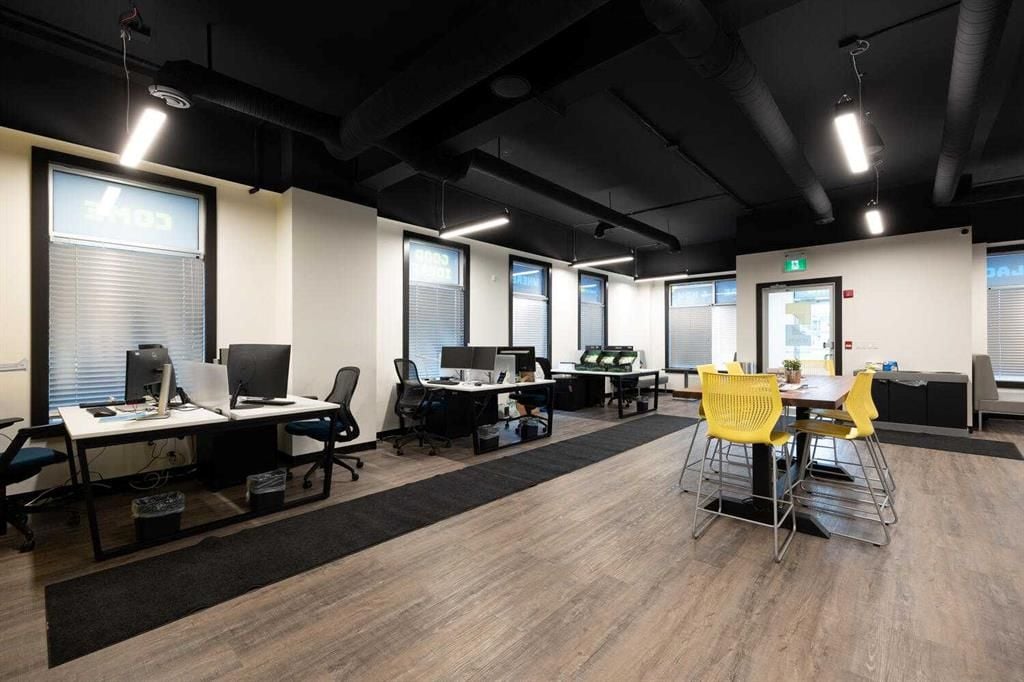Choosing the right commercial space in Fort McMurray is key to your business’s success. A good location supports operations, shapes customer perceptions, and fuels growth. Whether you’re opening a storefront, relocating, or expanding, the right space offers more than just square footage – it connects you with a growing market and a strong economy, driven by the local energy sector and infrastructure developments.
Read on to learn more about how to assess your space requirements, evaluate the market, and make an informed decision that supports your long-term goals.
Understand What Your Business Needs
Before reviewing listings, take a close look at your space requirements. Consider:
- Layout preferences (open concept vs. private offices)
- Operational needs (storage, loading docks, customer access)
- Accessibility for employees and clients
Define essential features—such as size, zoning, and accessibility—and distinguish them from optional ones. It’s also worth thinking ahead: can the space adapt as your business evolves?
Location: More Than Just a Map Pin
Your ideal location depends on your industry and how customers interact with your business. For example:
- Retail often thrives in high-foot-traffic zones
- Logistics and warehousing may benefit from access to highways or industrial areas
- Professional services may prefer proximity to clients or downtown hubs
Assess the surrounding businesses, infrastructure, and ease of access. If you’re exploring options in Fort Mac, Fort McMurray Commercial Properties – The Lore Group – Coldwell Banker United offers a range of spaces suited to retail & hospitality, office, and industrial needs. Look at how the area aligns with both your brand and operational flow.
Financial Considerations Beyond Rent
Start with a clear budget that includes more than just rent or mortgage. Common additional costs include:
- Property taxes and insurance
- Utilities and maintenance
- Security systems, internet, parking, or potential renovations
If purchasing, research financing options like commercial mortgages or local economic development programs. Evaluate total costs against your projected revenue and long-term stability.
Lease or Buy? Weighing the Options
Both leasing and buying have merits. Leasing offers flexibility with lower initial costs, which suits newer or fast-growing businesses. Buying provides long-term security and potential equity growth, with greater control over customization.
The decision depends on your financial position, growth outlook, and how long you plan to remain in the space.
What to Know About Commercial Leases
Lease structures vary. Common types include:
- Triple Net (NNN): Tenant pays rent plus property expenses
- Gross Lease: Landlord covers property costs
- Modified Gross: A mix of the two
- Percentage Lease: Often in retail—base rent plus a portion of sales
Review lease terms carefully. Pay attention to renewal clauses, rent adjustments, tenant improvement allowances, and termination conditions. A legal advisor can help clarify obligations and avoid pitfalls.
Research the Market
Understanding the local market strengthens your negotiating position. In Fort McMurray, factors like population growth, the energy sector, and infrastructure projects can influence demand:
- Population growth: Fort McMurray’s growing population, fueled by the energy sector, increases demand for office, retail, and housing spaces.
- Energy sector: The oil sands industry heavily impacts the commercial market, with fluctuations in sector health affecting demand, particularly in industrial and office spaces.
- Infrastructure projects: Ongoing developments, such as road expansions and transit improvements, enhance accessibility and can drive property value growth.
These insights can help you determine whether the market favours tenants or landlords and if it’s the right time to move forward.
Inspect with Purpose
A site visit is essential. Evaluate:
- Structural integrity and building systems (HVAC, plumbing, electrical)
- Compliance with zoning and accessibility standards
- Parking, transit access, and ease of delivery
These details often affect day-to-day business more than aesthetics.
Get Professional Guidance
A commercial real estate broker can help match you with properties that meet your goals—many of which may not be listed publicly. Brokers also assist with negotiations, while legal and financial experts can support due diligence, agreement reviews, and investment analysis.
If buying, it’s wise to include an inspector or contractor to assess renovation needs and long-term viability.
Negotiate Strategically
Negotiation is part of the process. Consider requesting:
- Flexible lease terms
- Rent-free periods or fit-out contributions
- Clear clauses for renewal or exit
Build in safeguards like financing and inspection contingencies before signing anything.
Plan for What’s Next
A commercial space should support your business now and into the future. Ask:
- Is there room to expand or reconfigure?
- Could you sublease if your needs change?
- Will the space accommodate future technologies or service offerings?
Keeping flexibility in mind helps protect your investment as the market and your business evolve.
A Smarter Approach to Commercial Space
Choosing a commercial space is more than a real estate decision—it’s part of your business strategy. By aligning your space with your goals, budget, and growth potential, you position your business for long-term success. Thoughtful planning, market awareness, and the right support can make all the difference.
Looking for guidance on your next commercial move? Connect with local experts Tristan Parker and Susan Lore, who understand the market and can help you find a space that fits today and scales for tomorrow.


